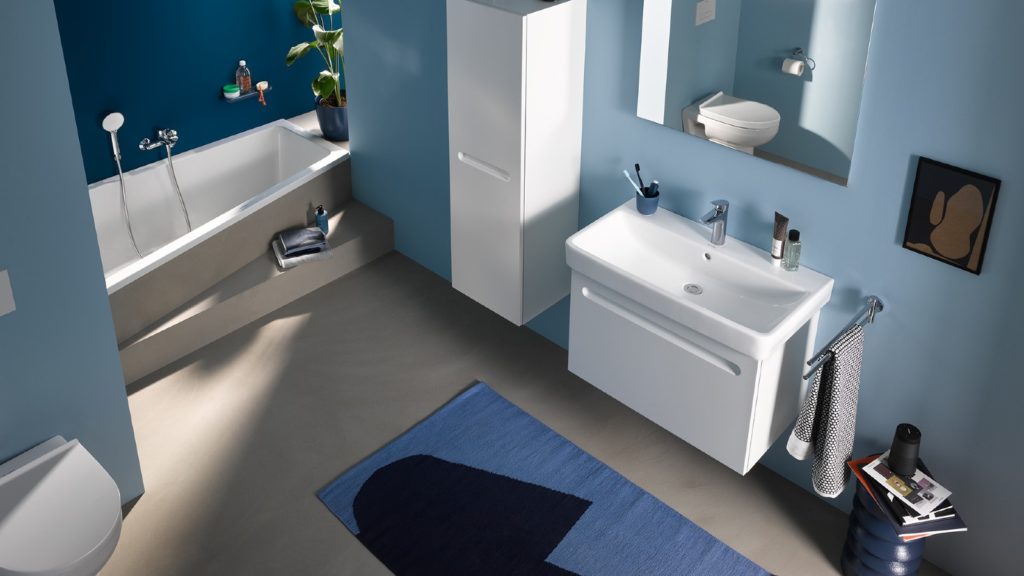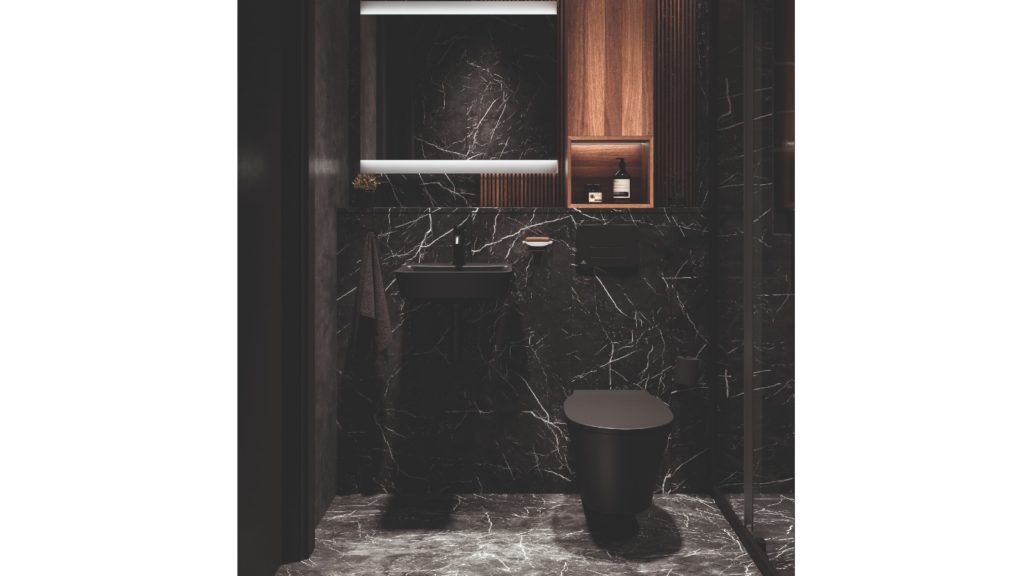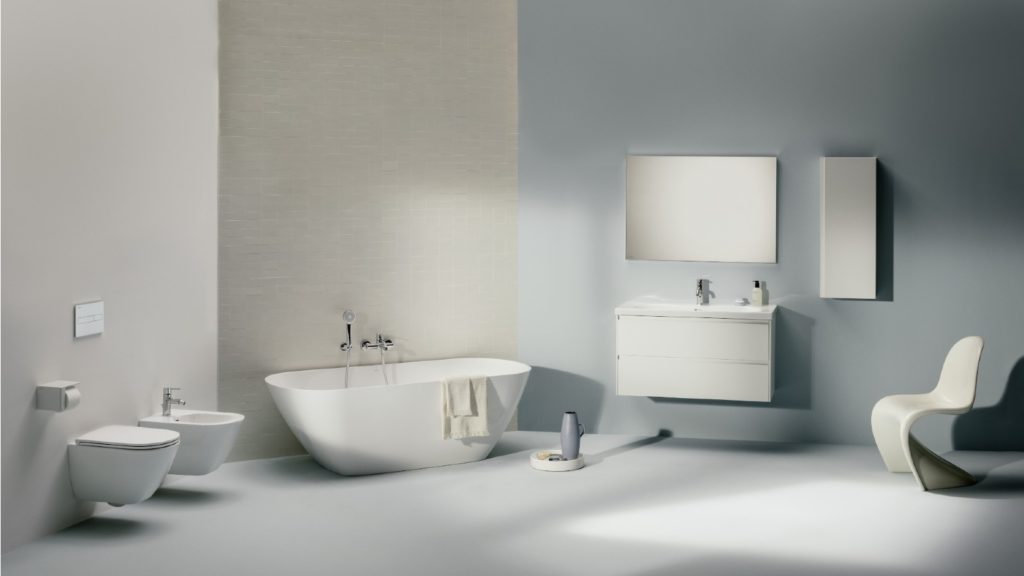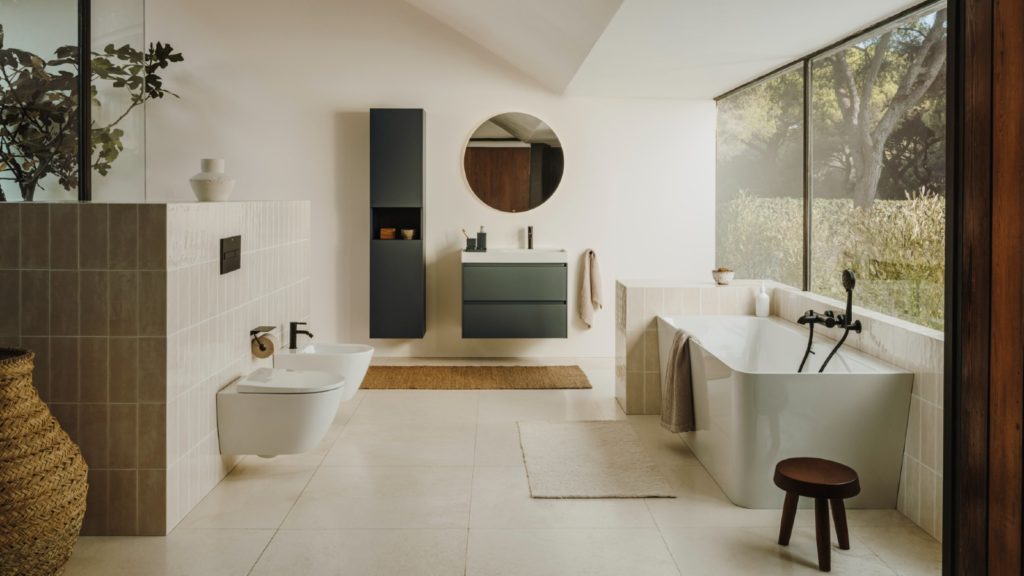Why bathroom suites with a cohesive look, doesn’t mean a lack of imagination in home design
The pandemic accelerated many interior design trends, as consumers forced to stay inside focused their attention on the home.

Created for the entry-level segment, Duravit has introduced Duravit No.1 bathroom collection for the first-time bathroom buyer through to hotel and project sectors
It saw the creation of multi-functional spaces, and the private area of the bathroom was no exception.
Sponsored Video
Taking an even greater role in being a transformative zone, enhancing wellbeing during what has been uncertain times, the bathroom had a larger role in becoming a space to relax and live in.
Sales and marketing director at RAK Ceramics UK Ben Bryden comments: “Comfort is certainly a priority in the master bathroom right now and these spaces are being designed as an extension of our living spaces.”
Cohesive appearance
With such a focus on the bathroom space being designed as a holistic part of the home, it has also meant a cohesive look for bathroom spaces, with the aesthetics carried through from master, through to ensuite and even cloakroom styling.

Silk Black ceramics can be specified as part of the Singular service from Ideal Standard, focused on visual continuity by encouraging designers to use one supplier and with one point of contact.
Group digital marketing manager at Bathroom Brands Group Rebecca Maher explains how this has influenced bathroom styling: “As a consequence, brands are now having to think a little more holistically when designing products.”
It sees brands not only provide a cohesive look across the bathroom, but from master or family space through to ensuite and cloakroom.
Head of marketing at Roca UK & Ireland David Bromell describes it as a “total bathroom solution” with the consistency of supplier and design providing a cohesive look across the home.
In fact, Ideal Standard has recently introduced Singular, a service focused on visual continuity by encouraging designers to use one supplier by having one point of contact across ceramics, furniture, bathing, showering and accessories.
Joint CEO of Ideal Standard Jan Peter Tewes adds: “Whether it’s a small project or 100 bathrooms, our practical advice, bespoke design service and highly experienced team ensures we can support every project, creating harmony with the visual continuity of our product ranges.
“It’s not only a faster and easier way to make decisions, but a more efficient way for customers to get the solution they need on time and on budget.”
Democratic design
This efficiency has been carried through to the value engineering of bathrooms, with a focus for manufacturers seemingly on creating suites with “attractive” or “well-positioned” price points.

Shown as a preview at Kbb Birmingham, the Lua collection from Laufen, designed by Toan Nguyen, is made from conventional ceramic to position it at a lower price point than using SaphirKeramik
Duravit recently introduced its Duravit One Collection at an entry-level for the brand.
While, the Lua bathroom suite by Laufen, previewed at Kbb Birmingham, was made from conventional ceramic rather than its premium SaphirKeramik to position it at the lower price segment of the brand.
In addition, Roca introduced the Ona brand, created for the mid-market, and described as “democratic design” by David Bromell of Roca UK & Ireland.
Commercial personalisation
However, that doesn’t mean there is a one-size fits all approach to bathroom design. Far from it.

Roca has introduced the Ona bathroom brand, created for the lower mid-market, and described as “democratic design”
Ben Bryden of RAK Ceramics points out: “There is a much greater choice available in today’s market, be that in terms of size ad shape, materials or colour.
“This has led to consumers becoming a lot more adventurous and willing to put their stamp on this most personal of spaces.”
He adds: “Nature-inspired materials and colourways are popular, with bolder pops of colour also in the mix. Overall, styles that create a calming, relaxing effect are key.”
It has seen manufacturers offer a wider choice to designers in a collection to help personalise schemes but within commercial parameters.
Of course, technology is also beginning to play its role in personalisation and differentiating bathroom schemes, while adding value through enhanced health and hygiene.
Think rimless WCs, antibacterial surfaces and touch-free flushes, while Roca has sought to further open the market for bathroom planning with The Gap D-Trit WC with built-in macerator.
Ben Bryden concludes: “Hygiene and ease of cleaning have always been a factor in bathroom design and a consumer’s choice of products, but this has certainly been highlighted further as a result of the pandemic.
“Features such as anti-bacterial surfaces and sensor-controlled touchless technology are likely to have much more selling power now as a result and we are certainly already seeing demand for these.”



